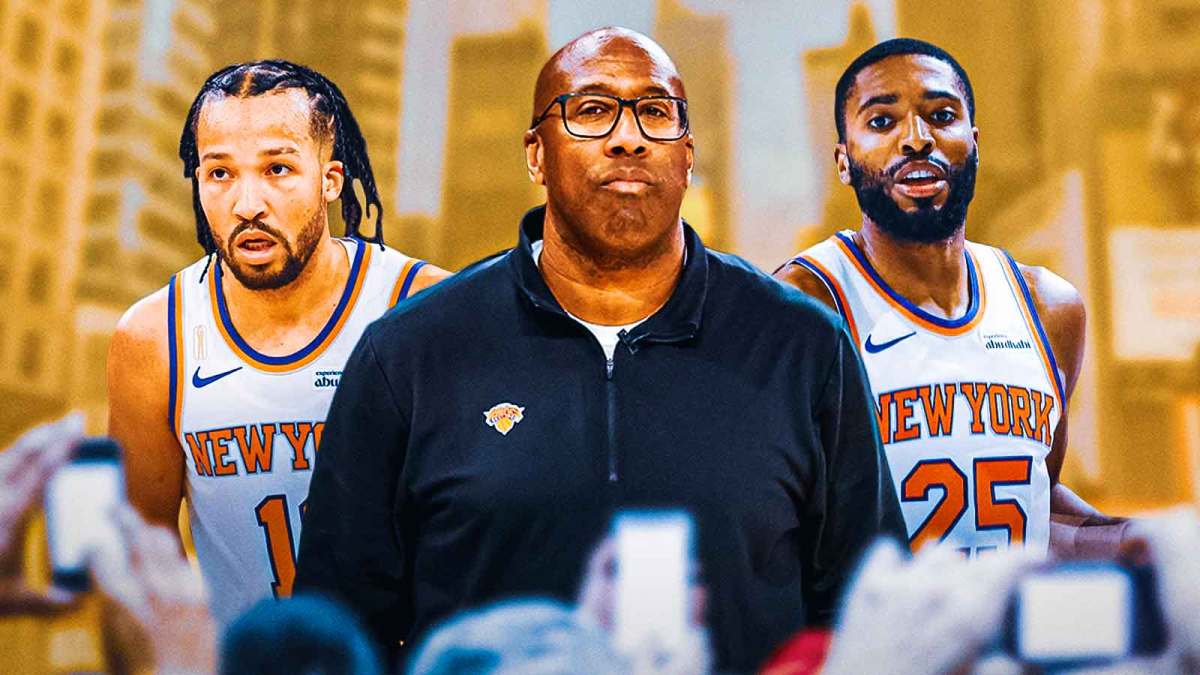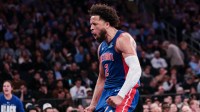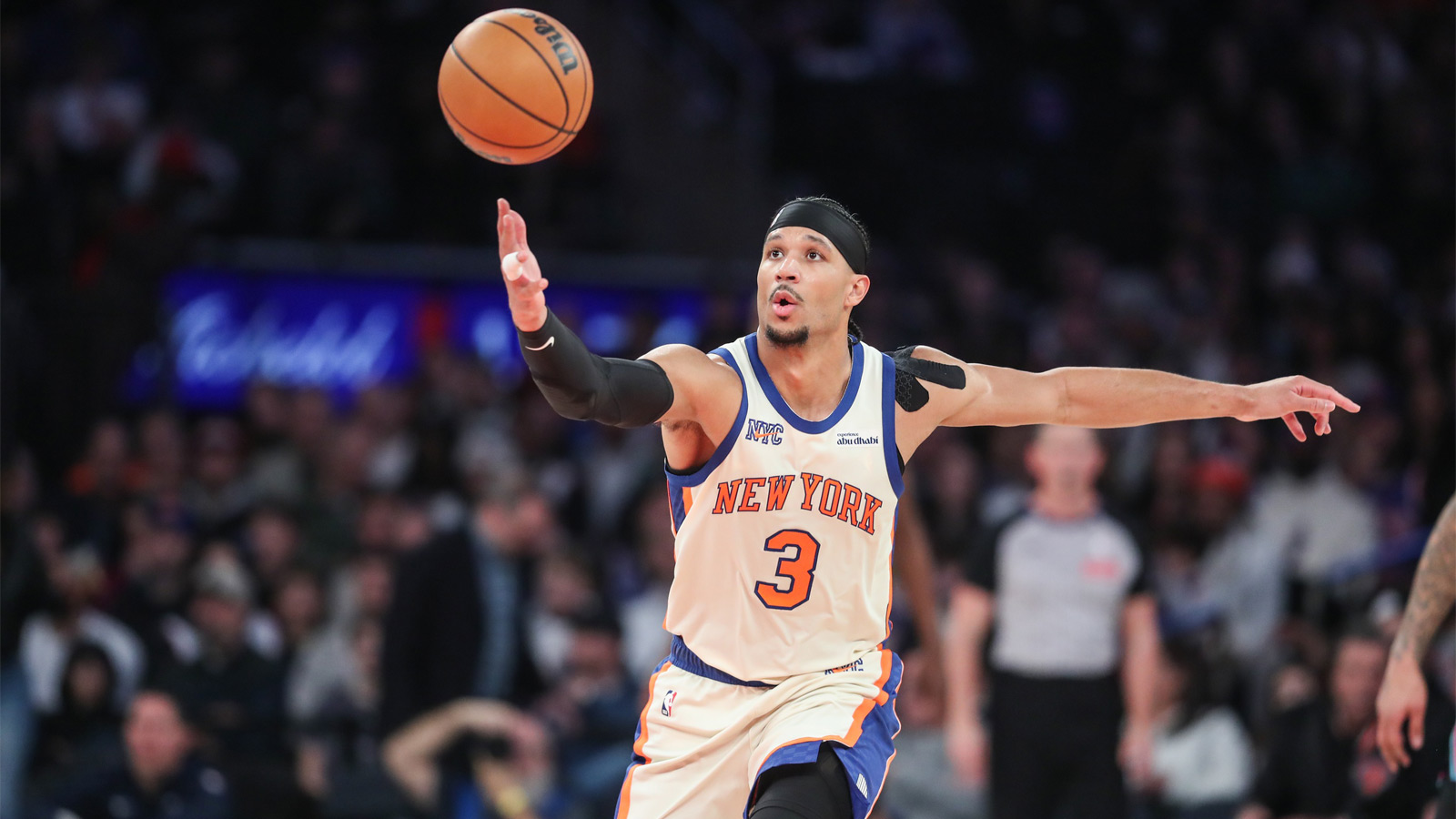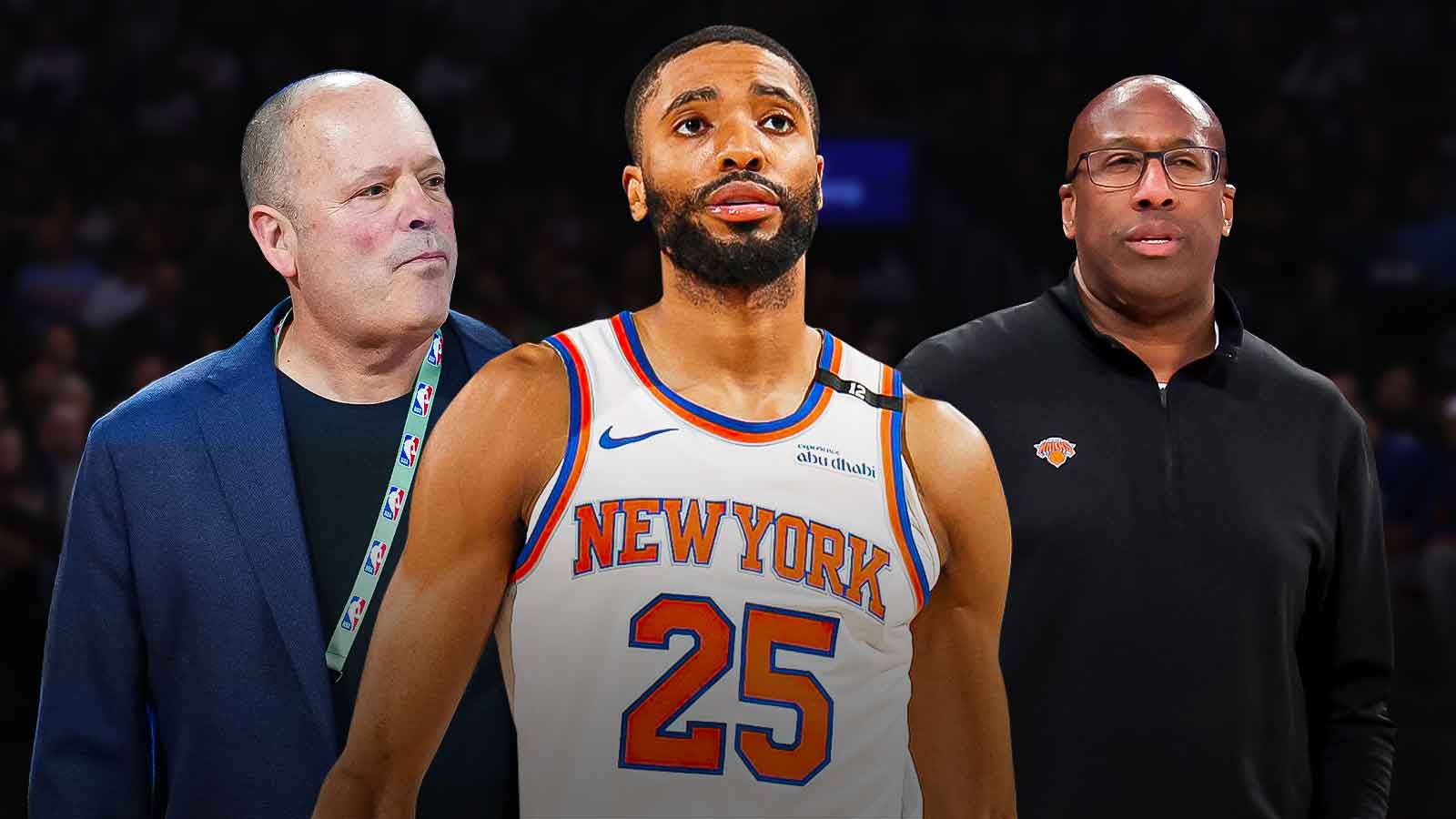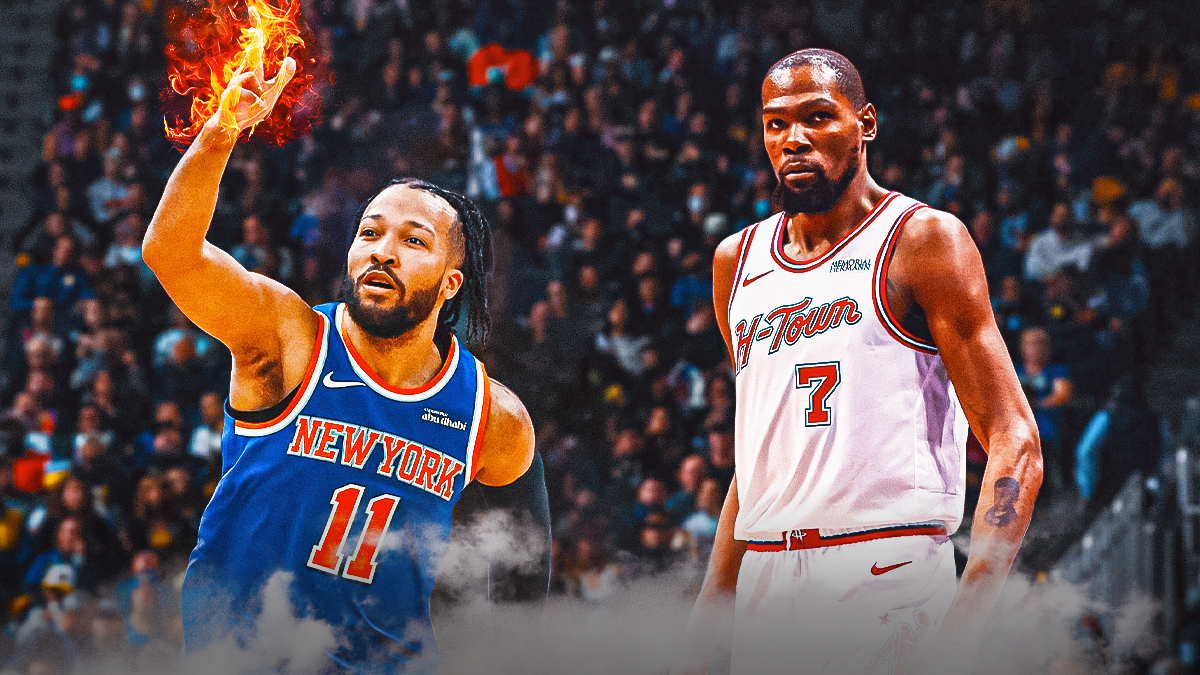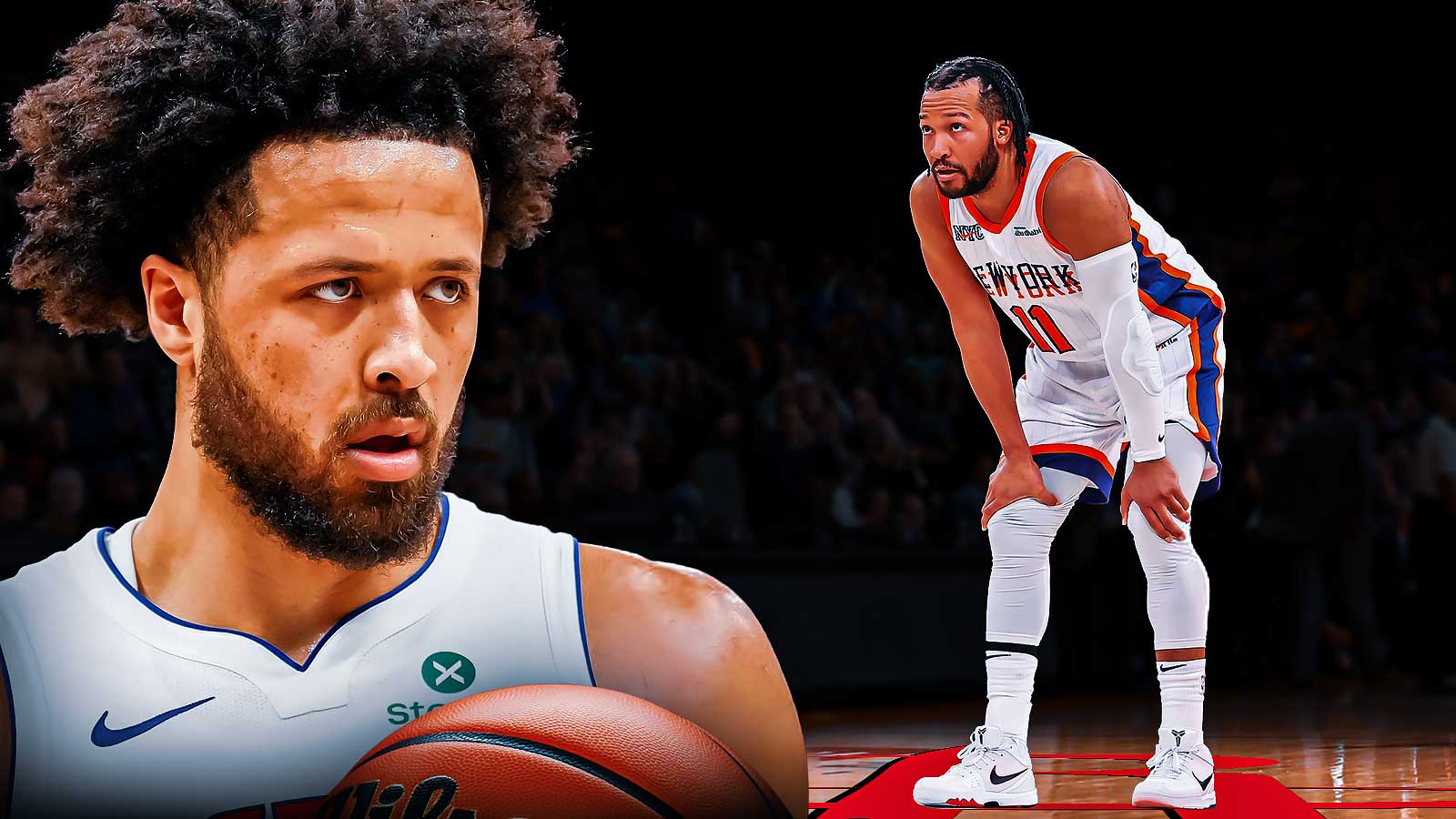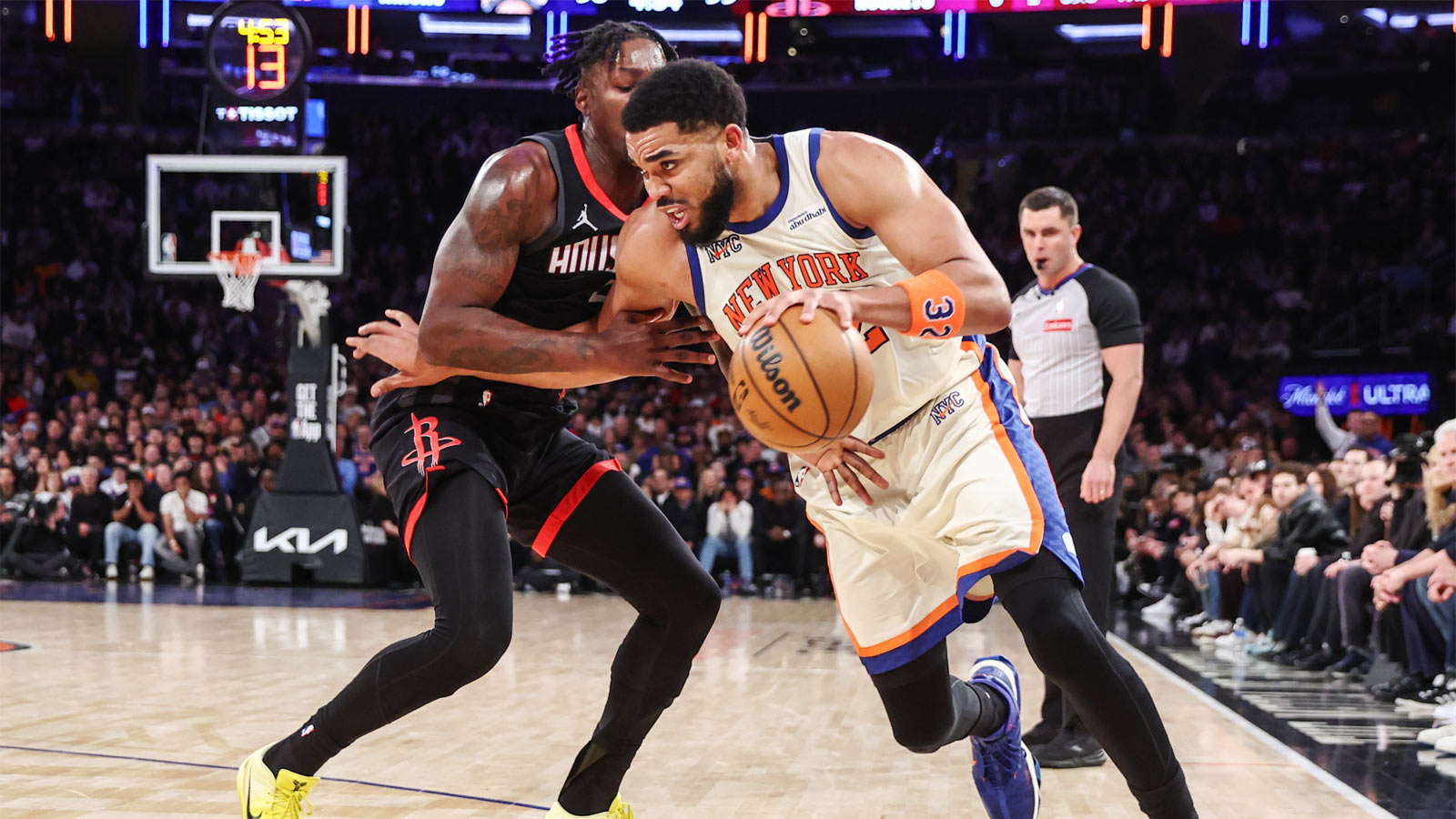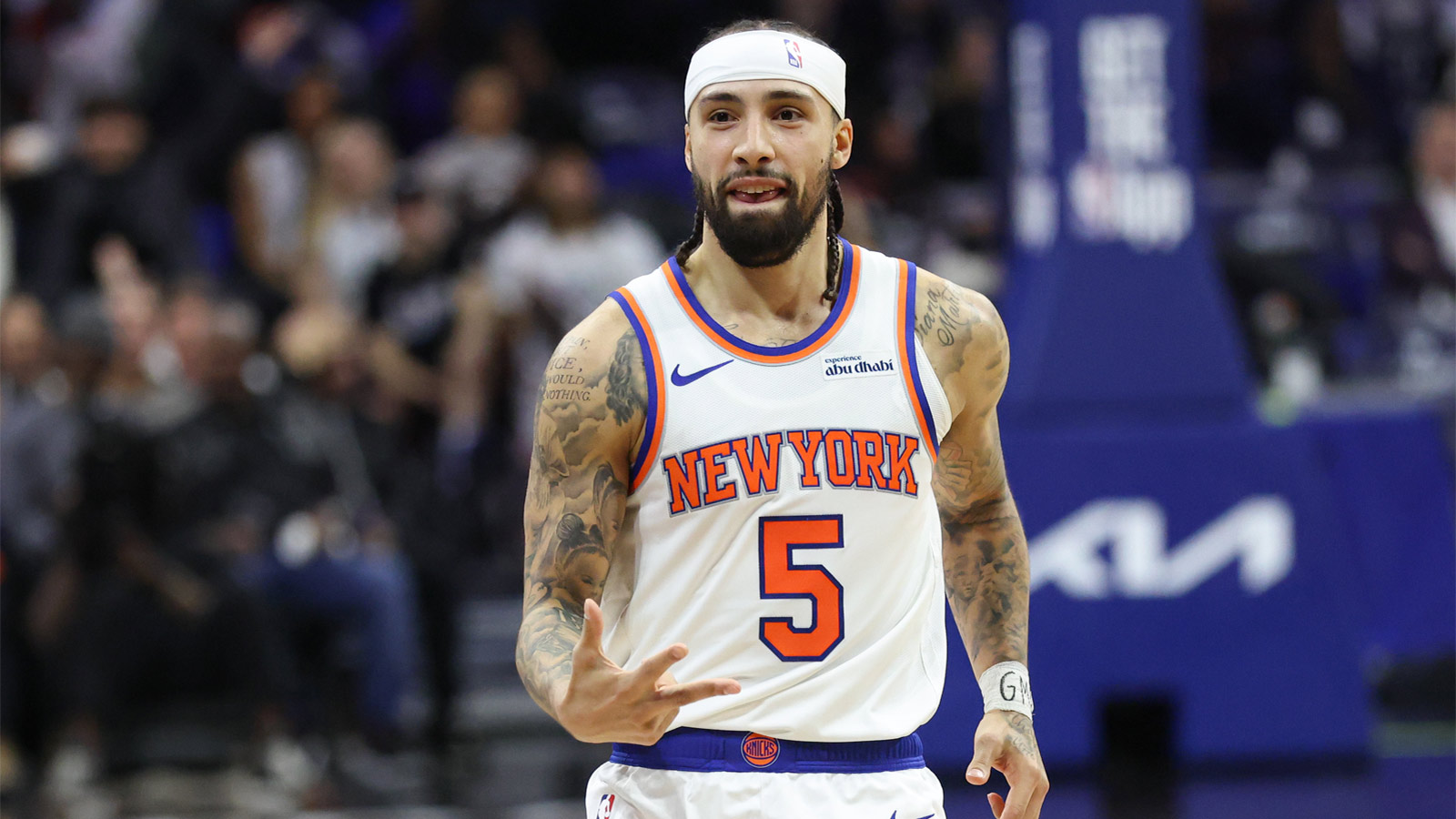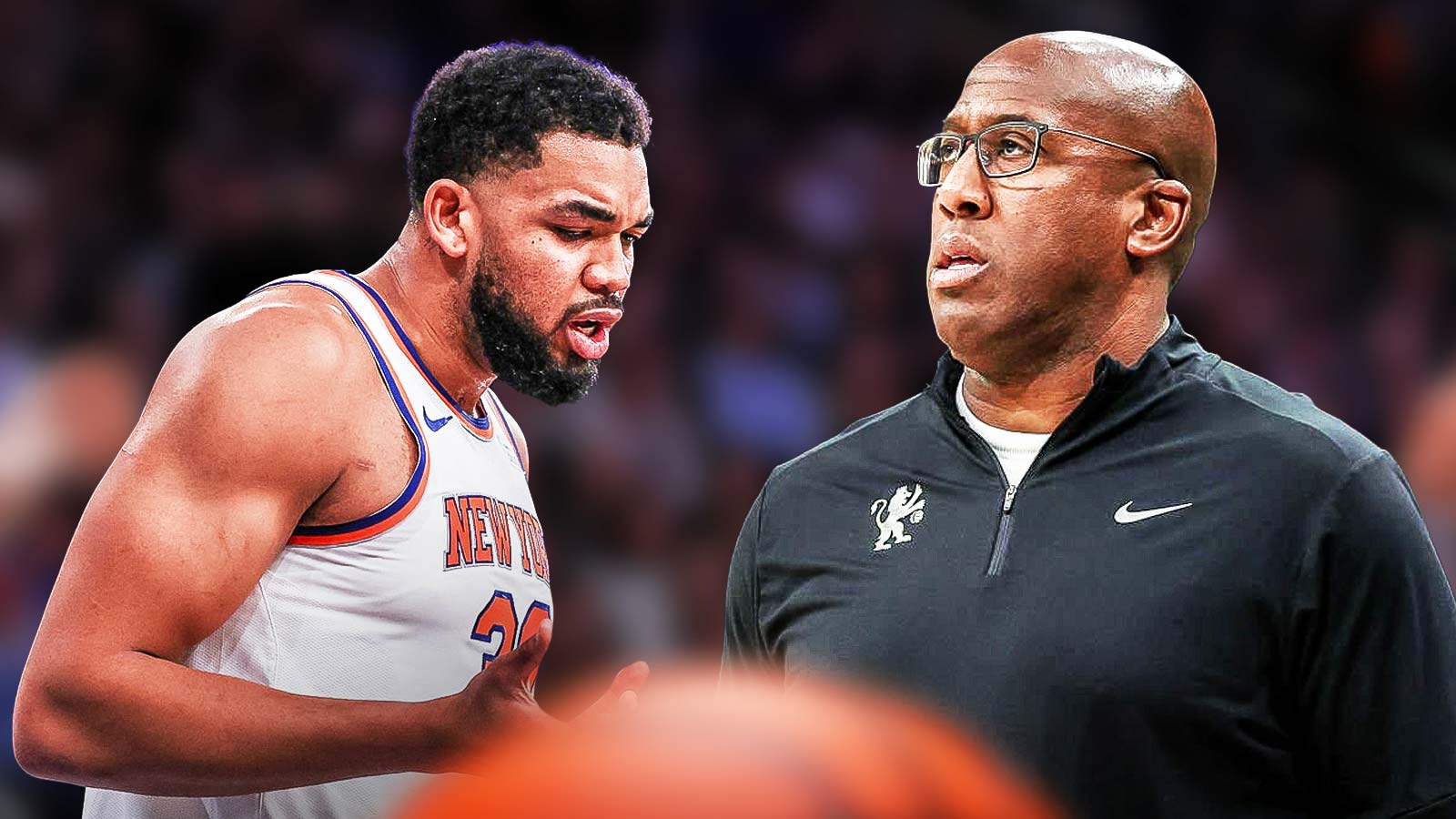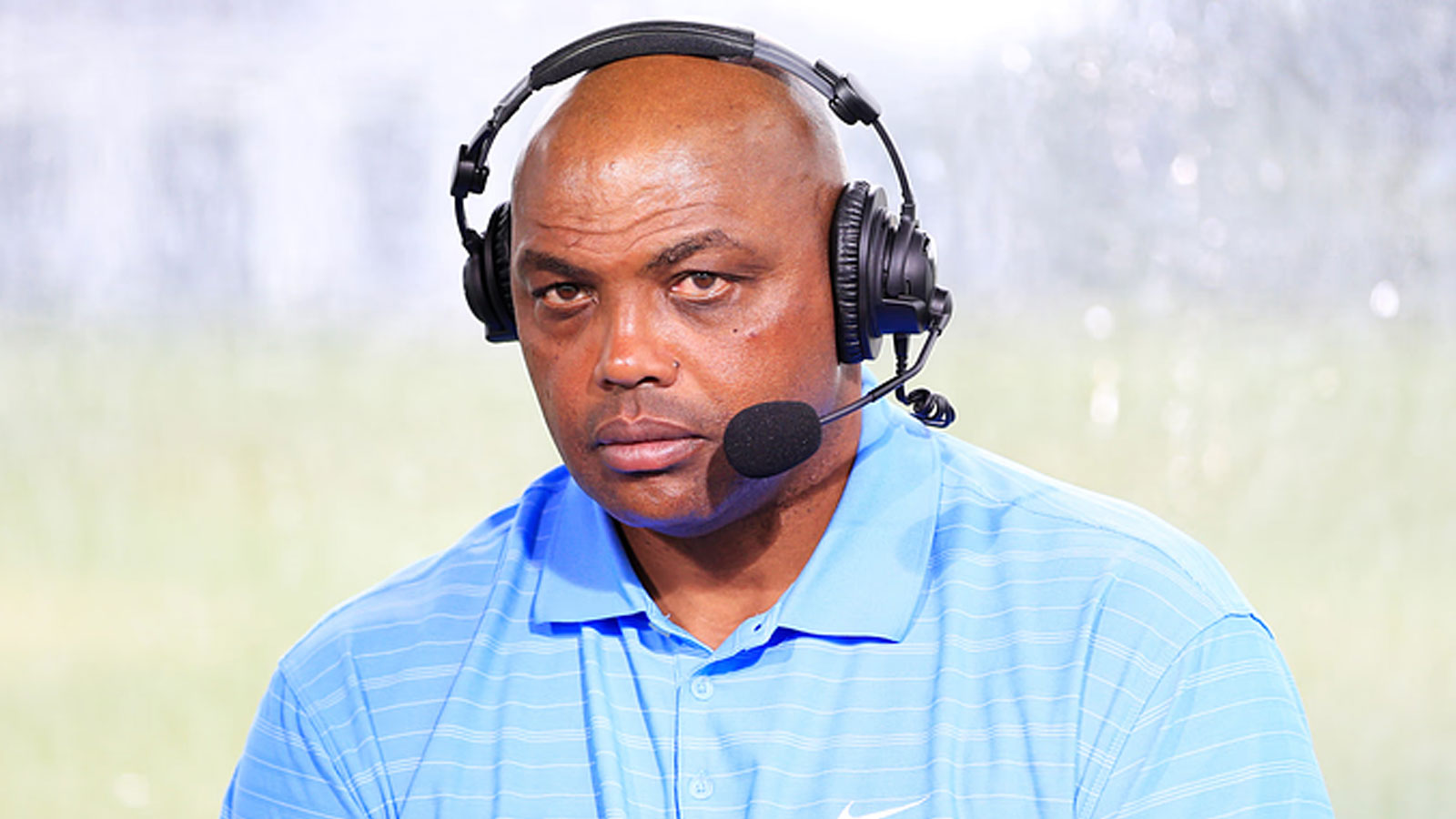The New York Knicks are winners of four straight after Sunday night's decisive home win. Every Knick played fewer than 29 minutes in the 134-98 victory. New head coach Mike Brown has not played a single player more than 36 minutes during their winning streak.
Sunday's crushing of the Brooklyn Nets was a masterpiece from Brown, who continues to make good on his 34-minute-per-game preseason estimations for Jalen Brunson and Mikal Bridges. Brunson played 28:47 and Bridges played 27:41 against the latter's previous team, bringing their early respective averages to 33.3 and 34.2 minutes through nine.
The Knicks were expected to beat the Nets, who left Sunday's loss with a 1-9 record. The way in which they win or lose games, though, is more important to Brown than the results. New York moved on from former head coach Tom Thibodeau in part because they seem to agree with that logic.
Brown spoke to his prioritization of his team's processes over outcomes after Sunday's win. When asked about his emphasis on shot quality, the coach revealed his calculated obsession with it. The coaching staff internally grades the quality of each 3-point attempt by color: green, yellow, or red. The process behind racking up “green,” open looks is the core of Brown's system. The 55-year-old explained how this ties directly into his constant focus on the postseason, even this early in the regular season.
“No matter what we do on the floor, we're going to have the ability to score. But, you know, you take the regular season and you prepare yourself for the postseason,” Brown explained. “And if you just go out there and play the wrong way and win, you know- we're still probably going to score, because we're talented. We got a lot of guys that can score. But it's not going to help us later on,” the coach told reporters on Sunday.”
Early returns show how Mike Brown has changed Knicks' approach
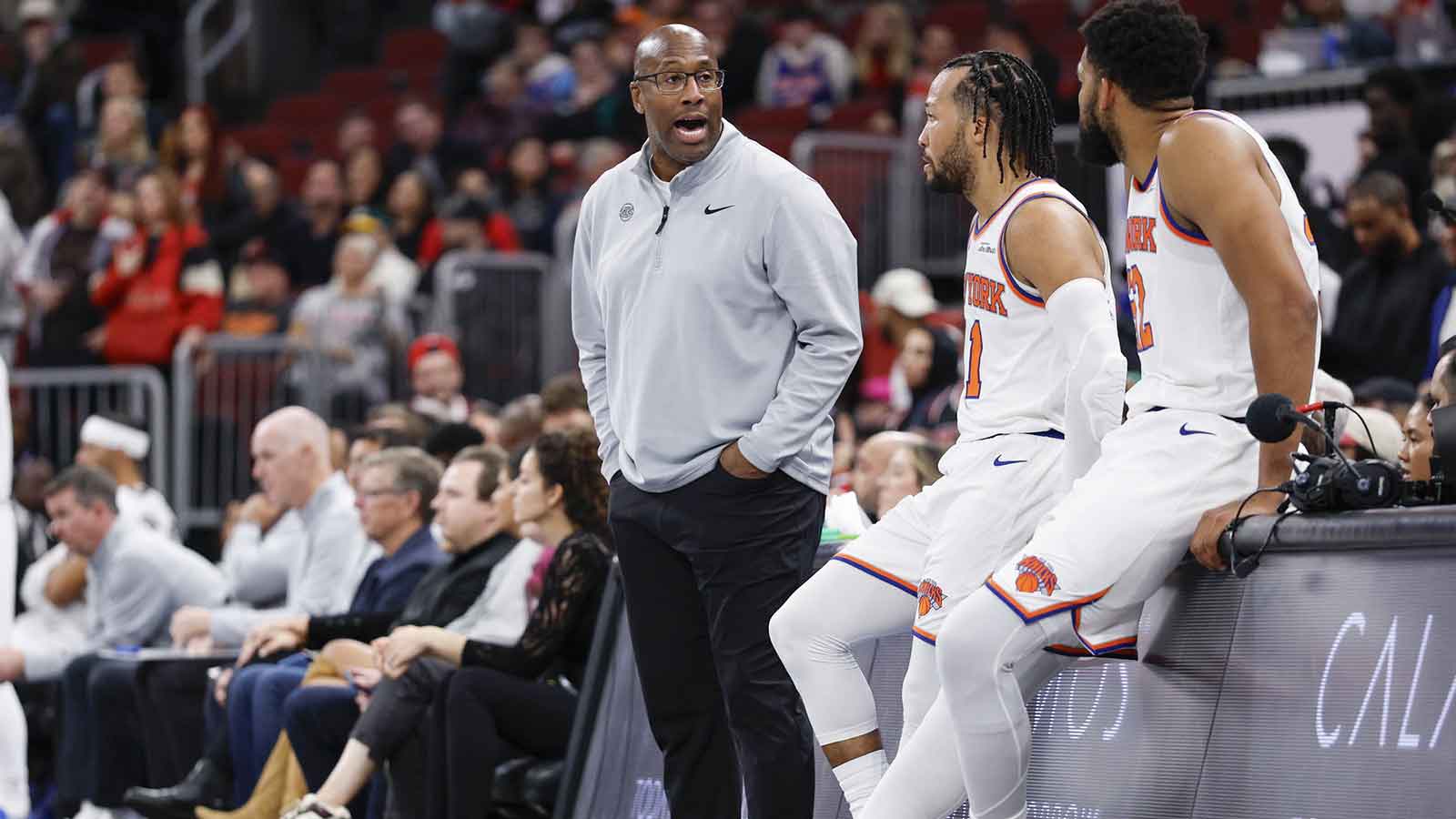
Brown's playoff-forward focus extends to his willingness to experiment, even when it may guide the team away from its best chance to win a game. Coupled with his seemingly granular management of minutes, these are stark changes from the last coaching staff. The Knicks ranked 30th in both bench minutes (12.7) and points (21.7) per game in 2024-25. It caused a rift between Thibodeau and Bridges, who expressed his dissatisfaction to the media. Brown played his bench 17.3 minutes per game in the first nine games, 24th-most in the NBA through Monday.
The team's shot diet has changed, too. Thibodeau spoke often about his prioritization of pace and corner 3-point attempts. The Knicks averaged 34.1 shots from 3-point range last season, which ranked 27th in the NBA. Their 26th-ranked pace did not set them up to take as many shots as other teams in general, but they were not commensurate proportionally either.
Those 34.1 nightly attempts represented 38.2% of the team's overall shot diet, below the league average of 42.1% of shots from downtown. 10.2 of New York's 3-point attempts came from the corners on average. The team shot the 11th most corner 3-pointers per game in the league.
The Knicks' 3-point shooting has surged to begin the 2025-26 season. The team has taken 42.9 shots per game from distance, third-most behind just the Cleveland Cavaliers and Boston Celtics through Monday. Further proof of New York's new hunger for 3-point looks lies with the proportion of their shots that have come from deep: 46.3% thus far.
Brown's team was averaging 13.6 corner 3-point shot attempts per game going into Tuesday's home matchup with the Memphis Grizzlies. That total was at least two more on average than the entire rest of the NBA to that point.
The results for individual players have been there, namely for the team's premier duo of wings. OG Anunoby led the league, averaging 1.9 makes from the corners through Monday. Mikal Bridges was tied for second place with 1.7 per game.
New York has barely played a tenth of their regular season schedule. It remains too early to have any firm judgments on Brown, the roster, or his utilization of it. These changes that have seemingly already been made to their approach, however, have been intentional. They are in line with what Brown has said since media day about getting Jalen Brunson easier shots.
Only playoff results can vindicate Knicks' coaching change
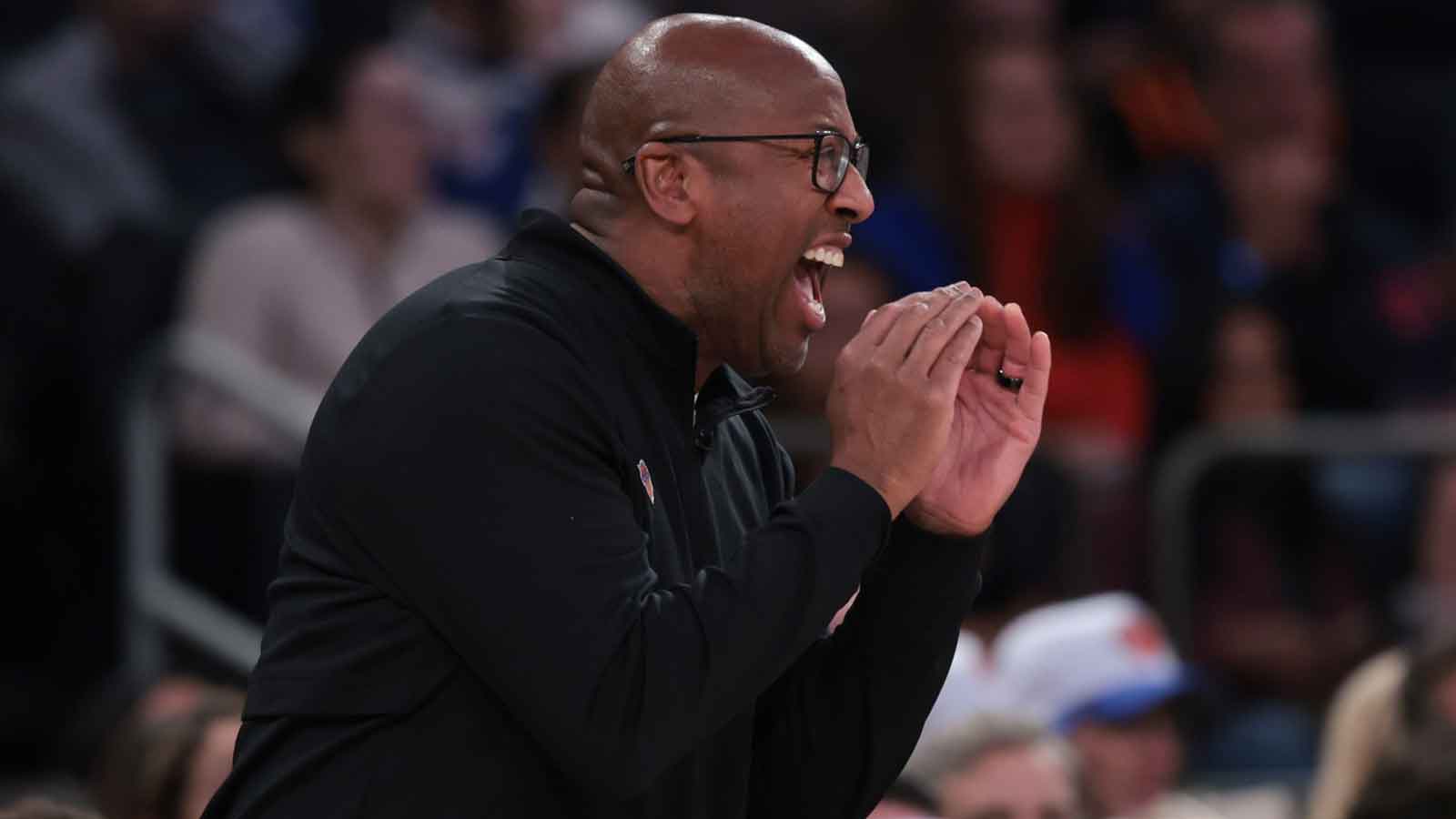
The Knicks have not played much faster, with their 99.28 possessions used per game through nine games not necessarily towering over last year's 97.64 pace. That is subject to change, as are all other statistics referenced. Brown hinted it might after the blowout win over Brooklyn. His discussion of points of improvement was taken over by his methodical approach to optimal offensive output.
“There are things that we have to continue to try to get better at, in terms of our recognition and stuff like that out on the floor–and our pace, getting the ball in bounds on a make, not walking the ball up, getting right to our stuff. If they take this away? Bam! We got counters,” Brown asserted with his signature enthusiasm, “go to the counter!”
The Knicks and their coach have plenty of time to improve throughout the regular season. Brown shared why he deserved criticism for the team's three-game losing streak in the same press conference. The team's 112.5 defensive rating was ninth in the league through Monday, with last year's 13th-ranked squad grading out at 113.3. They are reaping the benefits of his offensive adjustments.
Ultimately, Brown's system will be judged by the playoff results it either yields or fails to produce. Early indications have been that he correctly identified some areas for improvement and enacted a plan to deliver that change. It remains to be seen in genuine moments of hardship whether or not the players are fully bought into the new system or if the perpetual motion behind their open 3-point looks will wear them down as the year unfolds.
The Knicks have three more games in their seven-game home stand, including Tuesday night's contest vs. Memphis. They will have time before needing to take their show back on the road to continue to adjust to Brown's principles. Their coach certainly sees them as capable of it.
“I do think we can be better. That's what we should all be striving for, is to be better. And there's still a lot of room for us to grow,” Brown concluded.

